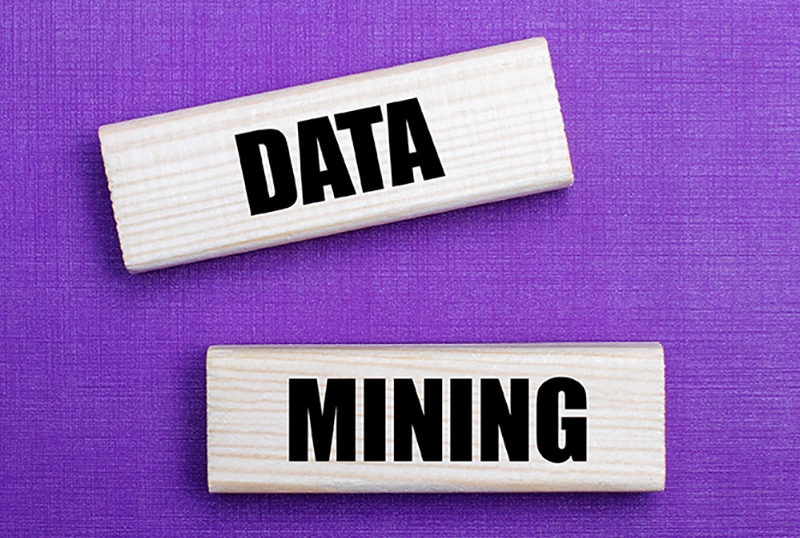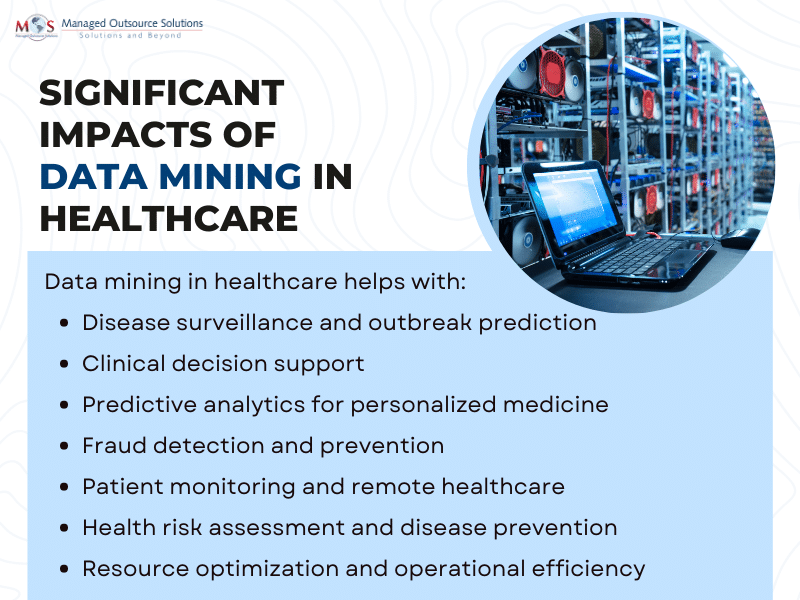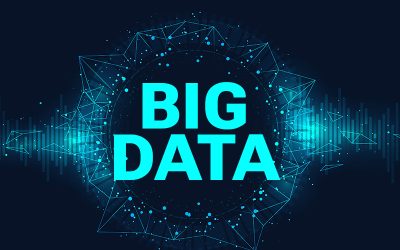Data mining, a powerful analytical technique, has found numerous applications across various industries, including healthcare. Data mining services in healthcare are designed to analyze large datasets and uncover relevant and meaningful patterns. By exploring and analyzing vast amounts of structured and unstructured data, data mining enables medical professionals to uncover valuable insights and patterns that can revolutionize patient care, improve operational efficiency, and drive evidence-based decision-making.
Mined data helps in forecasting trends, making informed decisions, and improving patient outcomes. It helps healthcare facilities comply with HIPAA regulations and utilize methodologies and technologies to recommend optimal treatments.
Data Mining in Healthcare: Key Areas of Impact
Disease Surveillance and Outbreak Prediction
- Enables analysis of data from various sources such as electronic health records, lab reports, and social media to detect disease patterns and potential outbreaks.
- Helps identify early warning signs for proactive measures and effective resource allocation.
Clinical Decision Support
- Facilitates patient records analysis, medical histories, and treatment outcomes to provide decision support systems for healthcare professionals.
- Assists with disease diagnosis, treatment selection, and predicting patient outcomes based on similar cases.
Predictive Analytics for Personalized Medicine
- Helps with analysis of genetic data, patient characteristics, and treatment outcomes to predict individual responses to specific therapies.
- Tailoring treatment plans for better effectiveness, reducing adverse reactions, and improving patient outcomes.
Fraud Detection and Prevention
- Helps identify fraudulent activities such as billing fraud, insurance fraud, or prescription drug abuse through data mining.
- Assists with evaluating patterns in medical claims, provider behavior, and patient records to flag suspicious activities and prevent financial losses.
Patient Monitoring and Remote Healthcare
- Helps study real-time patient data from wearables, remote monitoring, and telemedicine platforms.
- Helps detect trends and anomalies, provide timely interventions for chronic conditions, and reduce hospital readmissions.
Health Risk Assessment and Disease Prevention
- Facilitates reviewing large datasets including demographics, lifestyle factors, and medical history to identify disease risk factors.
- Assists in developing predictive models for early intervention, targeted interventions, and promoting healthier behaviors.
Resource Optimization and Operational Efficiency
- Enables optimization of resource allocation, workflow processes, and operational efficiency through data mining.
- Helps evaluate patient flow, staff scheduling, and resource utilization to identify bottlenecks and improve healthcare delivery.
The transition from paper to electronic health records (EHRs) has significantly facilitated the utilization of patient data to enhance various aspects of the healthcare industry. This shift enables healthcare professionals to collaborate and share their expertise seamlessly, promoting patient care, happiness, and eliminate medical errors. Furthermore, the implementation of electronic health records has paved the way for anticipated cost-cutting benefits through the application of data mining techniques. With its vast applications in disease surveillance, clinical decision support, personalized medicine, fraud detection, patient monitoring, disease prevention, and resource optimization, data mining is a transformative tool that continues to shape the future of healthcare.
Supercharge Your Business with Actionable Insights!





